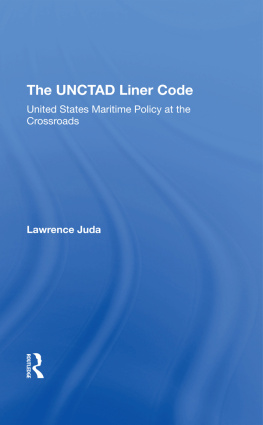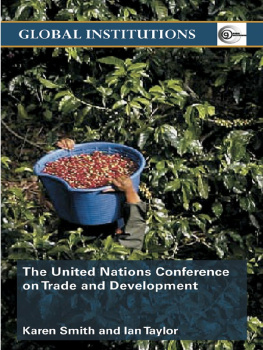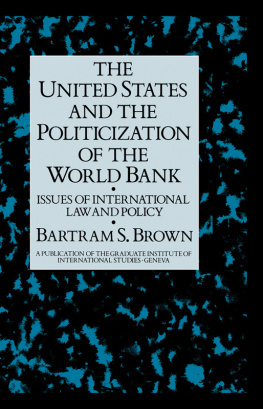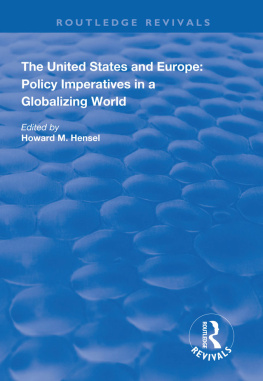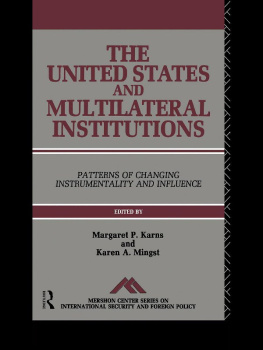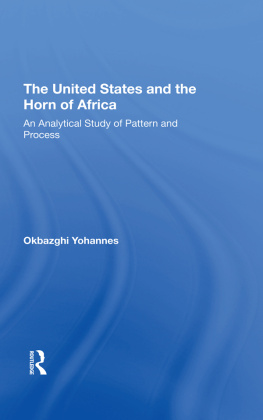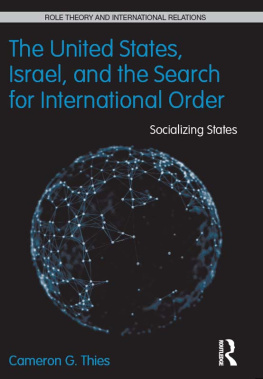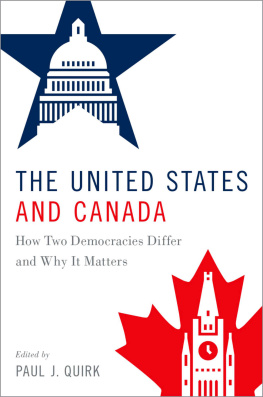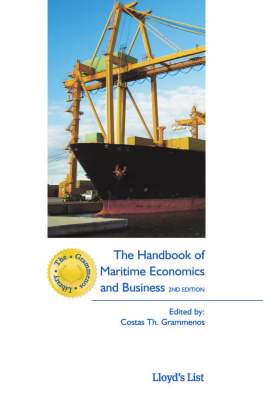The UNCTAD Liner Code
Westview Replica Editions
The concept of Westview Replica Editions is a response to the continuing crisis in academic and informational publishing. Library budgets for books have been severely curtailed. Ever larger portions of general library budgets are being diverted from the purchase of books and used for data banks, computers, micromedia, and other methods of information retrieval. Inter-library loan structures further reduce the edition sizes required to satisfy the needs of the scholarly community. Economic pressures on the university presses and the few private scholarly publishing companies have severely limited the capacity of the industry to properly serve the academic and research communities. As a result, many manuscripts dealing with important subjects, often representing the highest level of scholarship, are no longer economically viable publishing projectsor, if accepted for publication, are typically subject to lead times ranging from one to three years.
Westview Replica Editions are our practical solution to the problem. We accept a manuscript in camera-ready form, typed according to our specifications, and move it immediately into the production process. As always, the selection criteria include the importance of the subject, the works contribution to scholarship, and its insight, originality of thought, and excellence of exposition. The responsibility for editing and proofreading lies with the author or sponsoring institution. We prepare chapter headings and display pages, file for copyright, and obtain Library of Congress Cataloging in Publication Data. A detailed manual contains simple instructions for preparing the final typescript, and our editorial staff is always available to answer questions.
The end result is a book printed on acid-free paper and bound in sturdy library-quality soft covers. We manufacture these books ourselves using equipment that does not require a lengthy make-ready process and that allows us to publish first editions of 300 to 600 copies and to reprint even smaller quantities as needed. Thus, we can produce Replica Editions quickly and can keep even very specialized books in print as long as there is a demand for them.
About the Book and Author
The UNCTAD Liner Code: United States Maritime Policy at the Crossroads
Lawrence Juda
World shippingvital to international tradeis now going through a period of radical change. The UNCTAD Code of Conduct for Liner Conferences is an important manifestation of that change, reflecting the pressures exerted by developing countries for a New International Economic Order and for modifications in the system of international trade. The code, best known for its provisions on liner cargo allocations, includes a number of other very significant stipulations important for U.S. policy. For several years the United States has opposed the convention and acted on the assumption that the EEC countries, Japan, and other developed states would not ratify it. Now that ratification appears imminent, the United States may find itself isolated and exposed to a number of problems whose impacts may be felt not only in maritime affairs but also in trade, diplomacy, and security.
This study examines the nature, provisions, and possible effects of the UNCTAD Liner Code. Dr. Juda evaluates how the regime of the code compares with the present U.S. framework for liner regulations and promotion, then outlines and assesses the major policy options available to the United States given the positions taken by the developing states and the EEC. The book is based on interviews with key officials and on U.N. and U.S. government documents.
Lawrence Juda is associate professor and chairman of the graduate program in marine affairs at the University of Rhode Island and author of Ocean Space Rights: Developing U.S. Policy.
First published 1983 by Westview Press
Published 2019 by Routledge
52 Vanderbilt Avenue, New York, NY 10017
2 Park Square, Milton Park, Abingdon, Oxon OX14 4RN
Routledge is an imprint of the Taylor & Francis Group, an informa business
Copyright 1983 Taylor & Francis
All rights reserved. No part of this book may be reprinted or reproduced or utilised in any form or by any electronic, mechanical, or other means, now known or hereafter invented, including photocopying and recording, or in any information storage or retrieval system, without permission in writing from the publishers.
Notice:
Product or corporate names may be trademarks or registered trademarks, and are used only for identification and explanation without intent to infringe.
Library of Congress Cataloging in Publication Data
Juda, Lawrence.
The UNCTAD Liner Code.
(A Westview replica edition)
Appendix: The UNCTAD Liner Code:p.
Bibliography:p.
1.UNCTAD Liner Code.2.Shipping conferences.
3.Maritime law--United States.I.UNCTAD Liner Code.
1983.II.Title.III.Title: U.N.C.T.A.D. Liner Code.
K4212.A41983J8 1983 341.75668 83-10332
ISBN 13: 978-0-367-29688-9 (hbk)
To Alice, Emily, and Adam
This book could not have been completed without the cooperation and assistance of many people. I would like to thank the numerous individuals from the maritime industries, international organizations, and governmental agencies in the United States and Europe who, over the past several years, generously took time out of their busy schedules to speak with me at length and give me the benefit of their years of experience in maritime affairs. This study was very significantly aided by the frank sharing of their perspectives and insights on maritime developments.
The author gratefully acknowledges the financial support of the National Seagrant Program. This support made possible the dedication of time and effort to this study as well as some of the travel necessitated by research needs.
Thanks are also due to Professor Bruce Marti of the Marine Affairs Program at the University of Rhode Island for his many suggestions as this work proceeded. Professor Bernhard J. Abrahamsson of the Graduate School of International Studies, University of Denver, made a number of helpful comments on portions of my manuscript. Likewise, thanks are due an individual in the federal government involved in maritime affairs who, because of his official capacity, cannot be identified by the author but who commented upon earlier versions of this manuscript and made a number of helpful suggestions.
Candyce Clark, my research assistant and a graduate student in the Marine Affairs Program at the University of Rhode Island, was very helpful in 10-eating needed data and checking citations. Donna Gray deserves accolades for her patience and skill as she entered my manuscript into the word processor and made the many changes in the text as my work progressed to its final form. She was aided by Shirley Hoffrogge in this endeavor and that they both had a sense of humor was of great relief to me.
Finally, this study owes a large debt of gratitude to Alice Juda for her patience and understanding without which I could not have completed this work. In a more positive sense, though, she was, as always, of tremendous assistance in rendering my thoughts into better form and forcing me to clarify the presentation of my ideas. Her continuing support and encouragement has been a mainstay and is deeply appreciated and gratefully acknowledged.
After all is said and done, it is the author who, ultimately, must accept sole responsibility for the final product. This I do.

